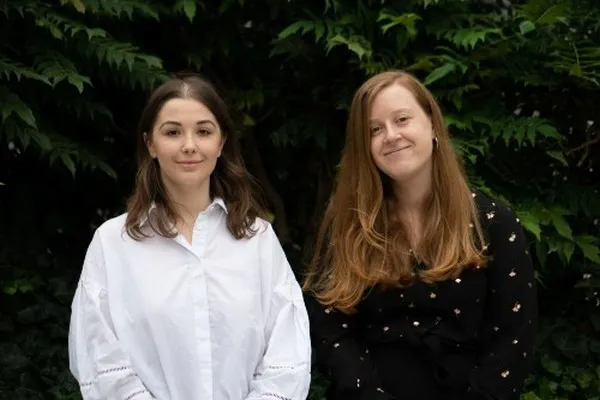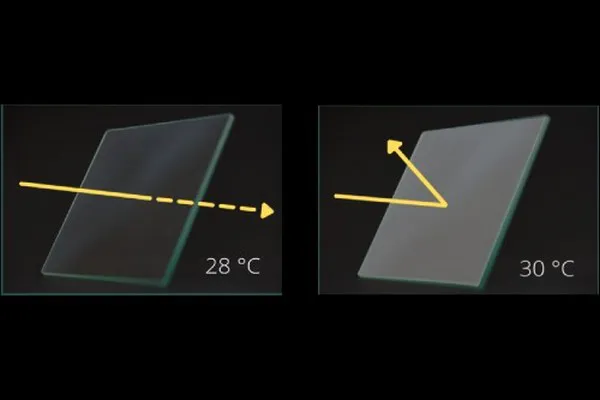A heat-sensitive coating for greenhouse glass that would maintain optimum temperatures all year round and remove the annual cost of applying and removing shading is being developed by University of Bristol spin-out Albotherm.
Molly Allington, CEO and Co-founder of Albotherm, presented in the REAP 2021 Start-Up Showcase. She explained that temperature control in the glasshouses is critical for maintaining crop health and maximizing yields. Molly said: “In the UK, temperature control is achieved through the application of shader paints, which act as a sun-protecting screen during the Summer months and are then removed for the Winter.
“Our coating would be applied once as a transparent layer. As the glass reaches a specific temperature, it would gradually become opaque, and then become clear again as it cools. The benefit is that it would allow passive temperature control throughout the year and not require the costly painting and removal.”

CEO Molly Allington and CTO Dr. Sian Fussell, Co-founders of Albotherm. Image credit: Albotherm
The idea for the coating emerged during CTO Sian Fussell’s PhD research into temperature-responsive materials.
Molly explained: “Sian realized the materials could have applications in agriculture, so we built a bench-top model greenhouse in the lab and applied our materials. It worked really well, lowering the temperature by 5 to 10 degrees. That’s when we realized it could have real-world use.
“We are designing the thermoregulation product to be applied to the glass as a spray-painted coating in the same way that current shade paints are applied, so it will fit within normal procedures.

Albotherm Product Image. Image credit: Albotherm
“In the long term, we see this as a platform technology as we can use turn out materials into a coating for a range of materials, potentially including polytunnels. We are also able to create formulations that transition at different temperatures, ranging from 18 to 45 degrees, so we can control the amount of light that is being blocked, thereby cost-effectively maintaining optimum temperature and light level in the tunnel or glasshouse for different varieties of plants and climates. Additionally, our technology can be used on conservatory roofs.”
The company is based at Future Space, an accelerator in Bristol, and is involved in product trials. Molly said: "Right now, we are refining the product for market – we’re pretty close to having a minimum viable product. Moving forward, it’s a matter of improving the durability of that and then scaling up over the next six months.”
For more information:
University of Bristol
www.bristol.ac.uk
